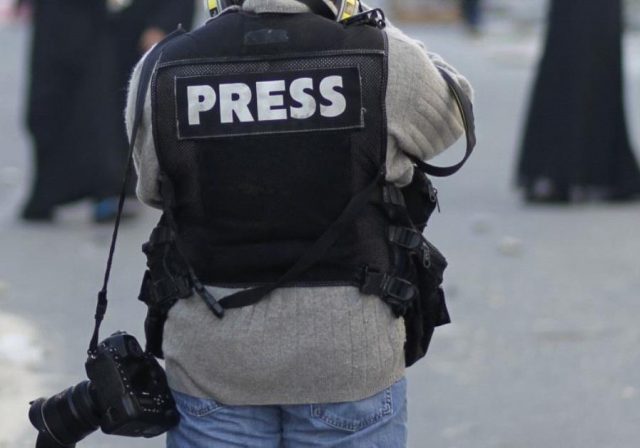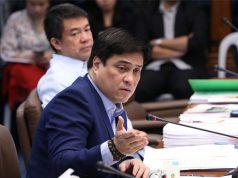A British journalist was charged with arms possession on Tuesday after being arrested at a Thai airport with a German colleague for checking in flak jacket plates and gas masks, standard equipment for media heading into war zones and other hostile environments.
New York-based Committee to Protect Journalists immediately called on Thailand to “stop charging journalists with serious crimes for trying to protect themselves while on dangerous assignments.”
“Authorities should drop all charges against reporter Tony Cheng and lawmakers should amend the 1987 Arms Control Act to decriminalize journalists’ use and possession of body armor,” Shawn Crispin, CPJ’s senior Southeast Asia representative, said.
Cheng, 46, and German freelance journalist Florian Witulski were detained at Bangkok’s Suvarnabhumi Airport on Monday, before they could board a flight to Iraq via Turkey for an assignment for China-based broadcaster CCTV English.
Thailand’s 1987 Arms Control Act classifies protective gear as “military weapons” that require a license to possess.
Cheng was carrying three gas masks and four plates for safety vests, said Somchart Maneerat, a police investigator.
“He faces a charge of unlicensed possession of war weapons,” Somchart told Reuters, adding that he faced up to five years in prison if found guilty.
Witulski said they were not aware that licenses were required for the safety gear.
“The plates were loose and were taken as check-in baggage, as we have done before many times,” Witulski said, adding that he and Cheng had travelled to Iraq and Afghanistan several times carrying plates, without being stopped by Thai authorities.
The Foreign Correspondents Club of Thailand, which also urged the dropping of charges against Cheng, noted that he intended to use the safety equipment outside of Thailand and therefore “posed no conceivable threat to national security.”
The group said it has offered to work with the government to allow journalists to carry protective equipment.
“Under the present implementation of the 1987 law, they are presented with an invidious choice: break Thai law or increase the risk to life and limb,” it said in a statement.
“It is worth recalling that two foreign journalists were killed in the violence in Bangkok in 2010; both might have survived had they been wearing body armor.”
In 2010, Reuters cameraman Hiro Muramoto and Italian freelance photographer Fabio Polenghi were shot dead, while covering clashes between anti-government protesters and Thai troops in the capital.
In August 2015, a Hong Kong photojournalist was arrested at the same airport for carrying body armor and a helmet. Charges were later dropped.










